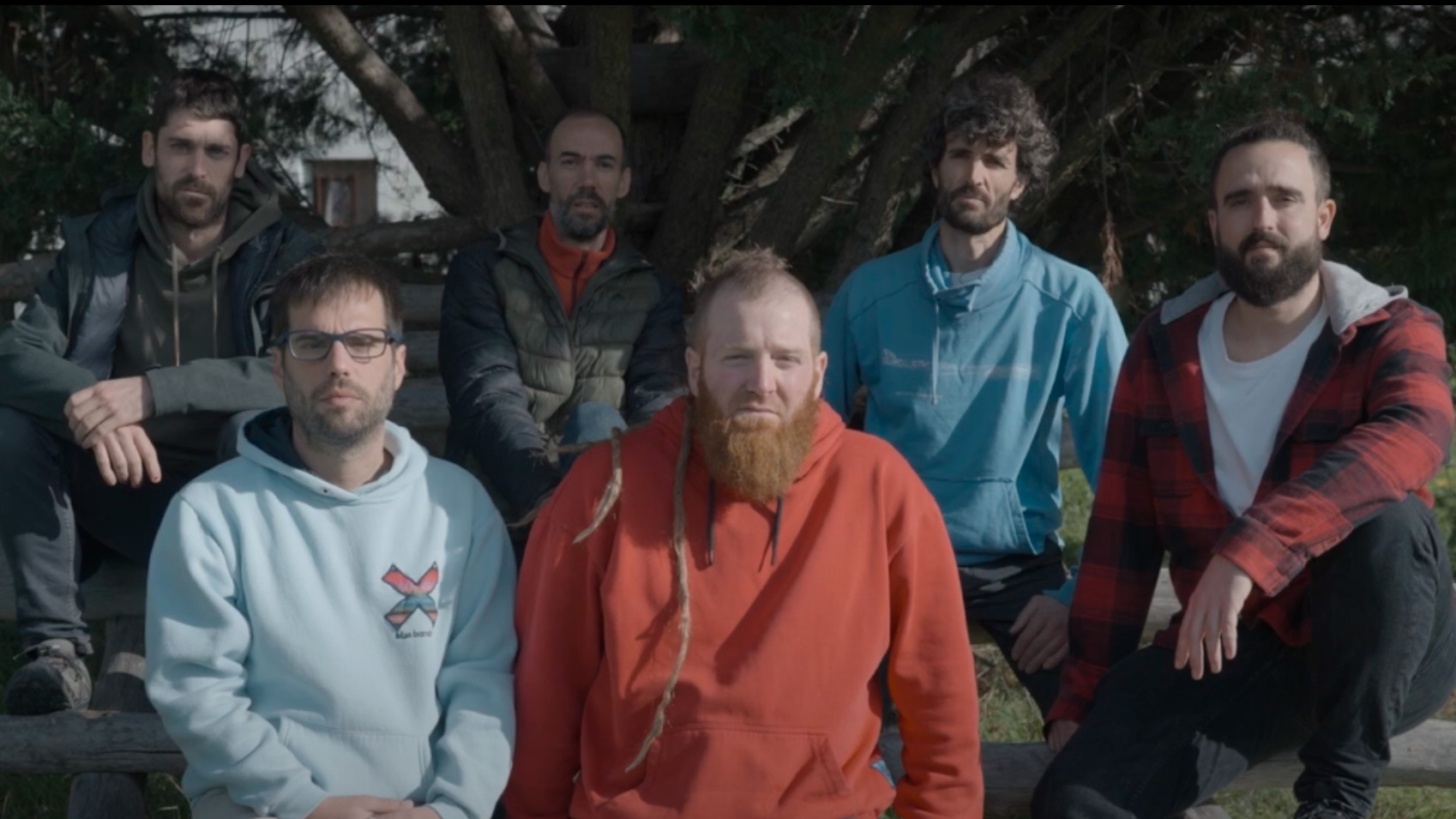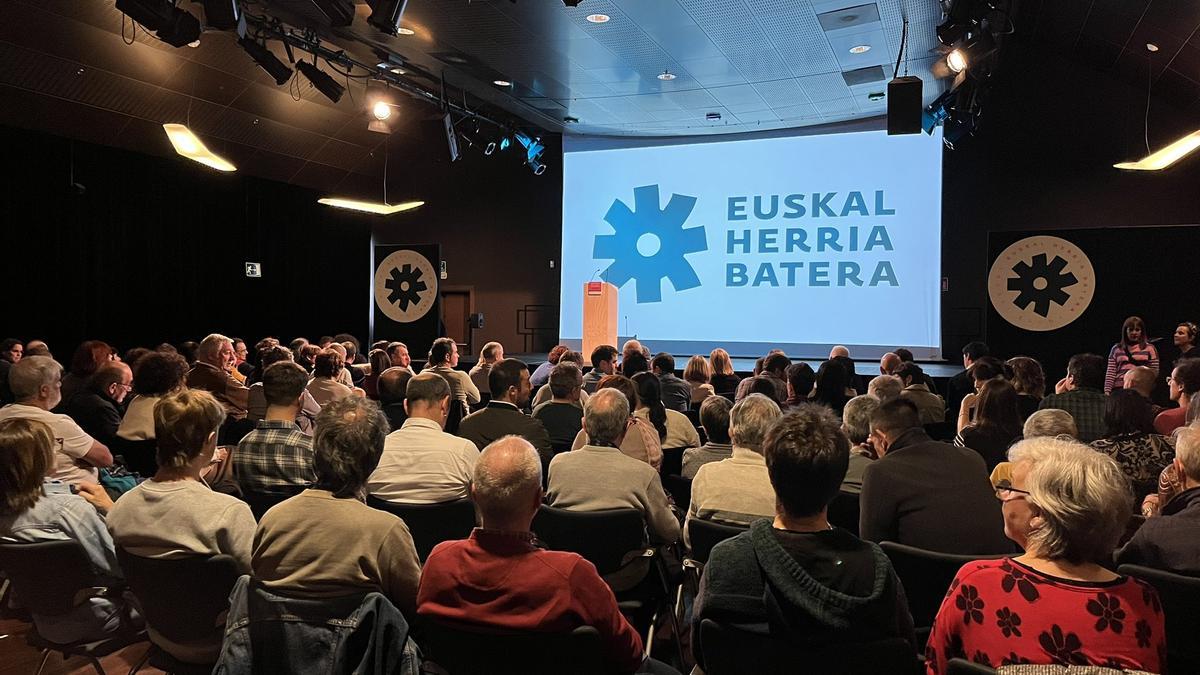"We are promoting tourism as if we were in Cantabria"
- Visitors who visited Bermeo, Zumaia and Leitza asked about their opinion of the Basque Country, and 95% of visitors responded that they had no problem with the Basque country. Many have appreciated the opportunity to learn the local language and some have affirmed that Euskera is one of the reasons for going to these peoples. On the contrary, in our environment, the tourist agents try to hide the Basque people because of the Game of Thrones fever. UEMA has processed the three surveys in the three municipalities and we interviewed Miren Segurola.
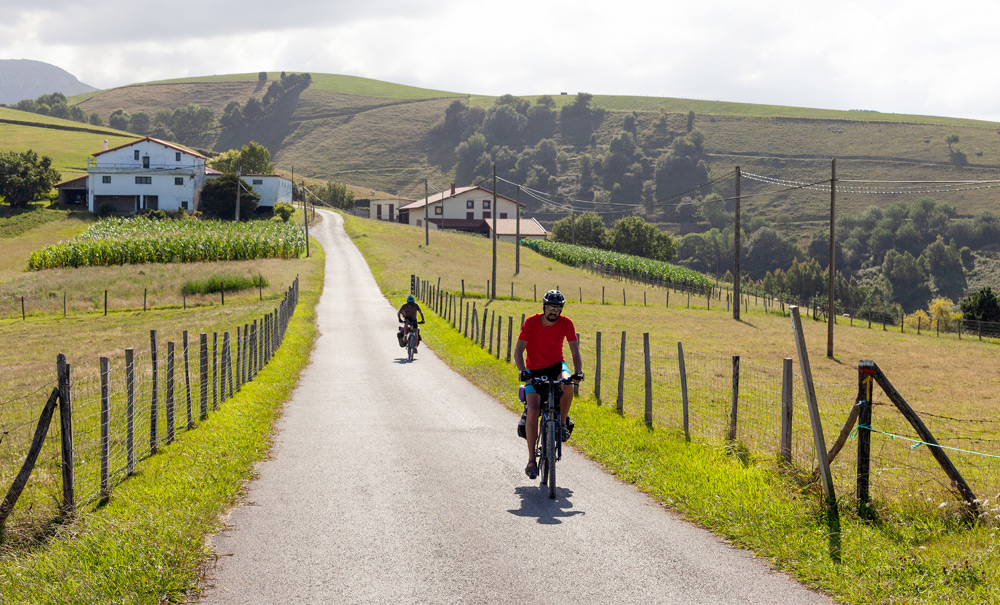
Visitors have been asked whether Euskera has been an obstacle. You had to ask questions like this ... Are we afraid to teach Euskera, and did we need such a survey to relax?
We from the municipalities started to worry especially about the Game of thrones [recorded in Zumaia and Bermeo] 8 Basque surnames [Leitza appears]. The municipalities were concerned because as a result of the films, mainly hosteleros and merchants tried to preserve the Basque country. They began to say that we would have to measure the impact that tourism would have on those peoples.
Our perception has always been that the people who come here have nothing to do with the Basque language, even more so, language is something that can be taken in a positive way. For us, these surveys have been a kind of proof of perceptions. We have before us a number of arguments for the development that we are going to make with the tourist agents. In fact, 95% of respondents say they accept language well.
Have you said that the municipalities of these three municipalities detected that there was a change in the use of the language in the people?
Especially in hospitality. The menus began to be put in Spanish and English, and the Basque language began to be discarded. The campaigns for Euskera in trade have been carried out for a long time, and to some extent it was believed that it had been overcome to that extent. And now are we going back by the people who are coming? The city councils were worried.
Who came up with the survey?
A group of objectives have been tourism promoters. The tourism that is being promoted today takes no account of language at all, and we believe that, given the language, a type of tourism that can be sustainable for our peoples can be promoted.
The second target group is tourism agents, i.e. hospitality and commerce.
In any case, we must work in a comprehensive way. That is, the City Hall can sell the locality linked to the Basque, but if the regional development agency in charge of tourism promotion has rejected the Basque in its tourism initiatives or if hotels and merchants hide the Basque, the intentions of the City Hall will not be successful. I am talking about things in the region, but the Basque Government is promoting tourism here on an international level. He will also have to do the same, at least now he is not following our line. We too have work, we have to convince the municipalities, and perhaps we also have to prepare awareness-raising campaigns for the citizens.
After all, the tourism model is being thoroughly questioned. Our model is based on natural resources and gastronomy. There's nothing out there. We must explain to the tourism lobbies the need to promote tourism based on the Basque language and culture. Now nobody works on that road, and we don't have to show the treasures that have been given so far.
"Because of the attractiveness of Euskera in China, a car has just come out, which is called a shark. Chinese to us taking the word 'shark' and we to them calling us Exhibition Centre."
Look, you said: “We need bold decisions to put Euskera into value in the tourism sector, in a direction that is contrary to what is being done today.” In other words, in the opposite direction.
Basque Culinary Center, Bilbao Exhibition Centre, Bermeo Tuna World… We are selling the opposite direction. Because of the attractiveness of Euskera in China, they've recently taken out a car called a shark. Chinese to us grabbing the word "shark" and to us calling us Exhibition Centre. We have to do the opposite: show, because we have to show, it is the oldest language in Europe, it is rich, and in some peoples it is very alive. When public institutions are doing it, you cannot tell the hotel owner: “You, put the menu in Basque!” The top one to act on the bottom one has to go in the same direction. Tourism lobbies and public institutions are heading in the opposite direction.
Coming at the municipal level, in our villages tourism is being channelled and promoted from the development agencies. We have now contacted the tourism technicians and never linked tourism and language. You haven't thought about that. They're thinking about how to attract people to what we have. To the monastery of Loiola, route of San Ignacio and a tour of Xoxote. And how do we communicate it? In English, Spanish… It does not occur to them that tourism may be related to the Basque country. In Cantabria, work is being done on the same criteria as tourism promotion.
What is the fear of those seeking to hide the Basque language?
The driver of tourism believes that it is not necessary and that, even if Euskera were taught, the economic benefit sought through tourism would be reduced. On the contrary, among the hospitality companies and traders, there are still those who have no sensitivity for the Basque country. A false belief makes it more practical to speak English and Spanish. And, of course, they also think that, by giving priority to the Basque country and using the criteria that we put forward, they may lose some of the economic benefit that tourism brings them.
"The municipalities of Zumaia, Bermeo and Leitza were concerned about the fact that the 'Game of thrones' and '8 Basque surnames' films, especially the hotels and merchants, were trying to preserve the Basque."
But the results indicate that very few people have felt uncomfortable with the Basque country in the area. In addition, some have appreciated that the language of the area is uncovered and for some the Basque language has been one of the reasons to go to these peoples.
The Basques have empathy with other cultures. If we travel to Italy we want to pick up its essence, we will not walk without leaving the Chinese district. It has all the logic. Something else. On the Bizkaia side there are a lot of people going to Leitza. What? Parents go with children. Children are at ikastola, but often live in an erdaldun environment and seek Euskaldunes. They move from Bilbao to Lekeitio for the same reasons. There is also this type of tourism, they are looking for the Basque people.
Are we far from taking advantage of the benefits of teaching our language?
We hide Euskera and encourage regular tourism. There are possibilities that can be new economic activities and that have not been addressed, based on the Basque culture: bertsolarism, journalism, literature… In each people we have writers, bertsolaris... So far very specific initiatives have been worked out, such as the museum that Iñaki Perurena has in Leitza, taking the stone as a theme. But they're private initiatives. No public institution has addressed these lines. Who will look at these new lines? Who are they collaborating? Pintxos and awnings are always fine, but we can offer something else.
The attitude towards Basque is different between those who have two official languages in their country of origin and those who have a single language.
These survey questions are the key, because they are questions that are always asked for tourism, how much they come from the CAV, from Navarra, from Spain, from France… Never wonder how much they come from the Catalan countries, from the Valencian country, from Galicia. This information is essential to understand some attitudes towards language. If those who come are from a community with a minority language, their attitude is much more empathetic to our situation, to our culture… That is why it is very important where we promote tourism. It is no coincidence that Scotland is promoting tourism in Catalonia. Scotland has decided to do so. The Basque Country does not specifically promote tourism in other minority communities. At the Provincial Council of Gipuzkoa we have presented a Airbnb type plan, which will be developed among minority language communities. We have to attract the tourism we want.
As to the reasons for the discomfort, the survey indicates that the problem does not seem to be the lack of knowledge of the language, but ideological or customary reasons.
Many times we go to other places to which we do not know the trace of their languages and when we go there nobody complains. The reasons are ideological, yes. The complaints have been almost entirely those of Spain, which have a single official language. Those outside the Spanish State have hardly complained.
Those who approach Leitza await the Basque culture and the Basque culture, and those who turn to Zumaia do not. Why have they been sold Flischa and Game of Thrones? What do we offer them to do?
In Leitza, the results are better than in the previous edition. In Leitza the phenomenon of the 8 Basque surnames is evident. In the film, Leitza is an Euskaldun, sympathetic, nationalist space. People want to know what the “mountain basques” of the film really look like. On the contrary, Bermeo and Zumaia have the appeal of Game of thrones. People come to what they sell for.
In autumn, you will hold conferences on Euskera and tourism. What plans do you have?
We want the silent subject to be put on the table. Among other things, we want to show the influence it has on language ditugu.Turismoak examples from other countries that are working on the basis of language.
We want to focus on the sector and reflect on sustainable tourism in the Basque municipalities. If we do not take the step of thinking, no one else will.
We are glad to hear the increase in tourism in our peoples, but have we thought about how this affects us? In our language, in our culture? They'll give the news again that the hotels are full, okay, but we'll also have to look at something more as a town. We are not saying that tourism is not promoted, but we are going to promote another type of tourism, sustainable tourism in many ways.
Goldatz talde feministak antolatua, ortziralean, urtarrilaren 3an, Jantzari dokumentala proiektatuko dute Beralandetan (17:30ean) eta biharamunean, urtarrilaren 4an, Berako bestetako tradizioak aztergai izanen dituzte Maggie Bullen antropologoarekin leku berean (10:30).
For pedagogical or methodological reasons, historians tend to fragment and divide historical periods of the past into deadlines. There are traditional times that we all know (Prehistory, Antiquity, Middle Ages, Modern and Contemporary Ages), but also several sub-ages.
These... [+]
Ander Magallon, Mikel Irure eta Xabier Jauregi Metropoli Forala saioan egon dira maskulinitate berrien inguruan mintzatzen.









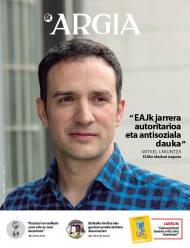



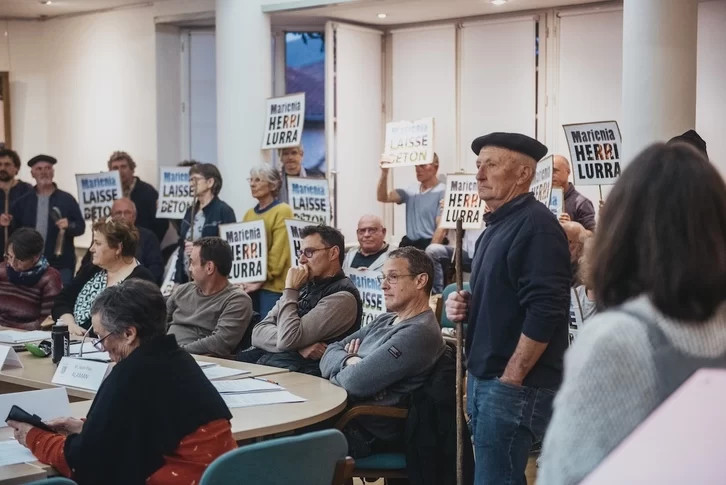
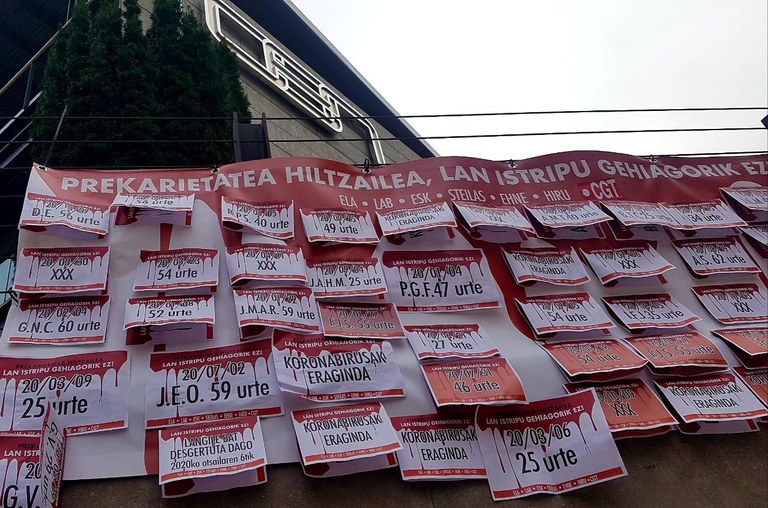



.jpg)


